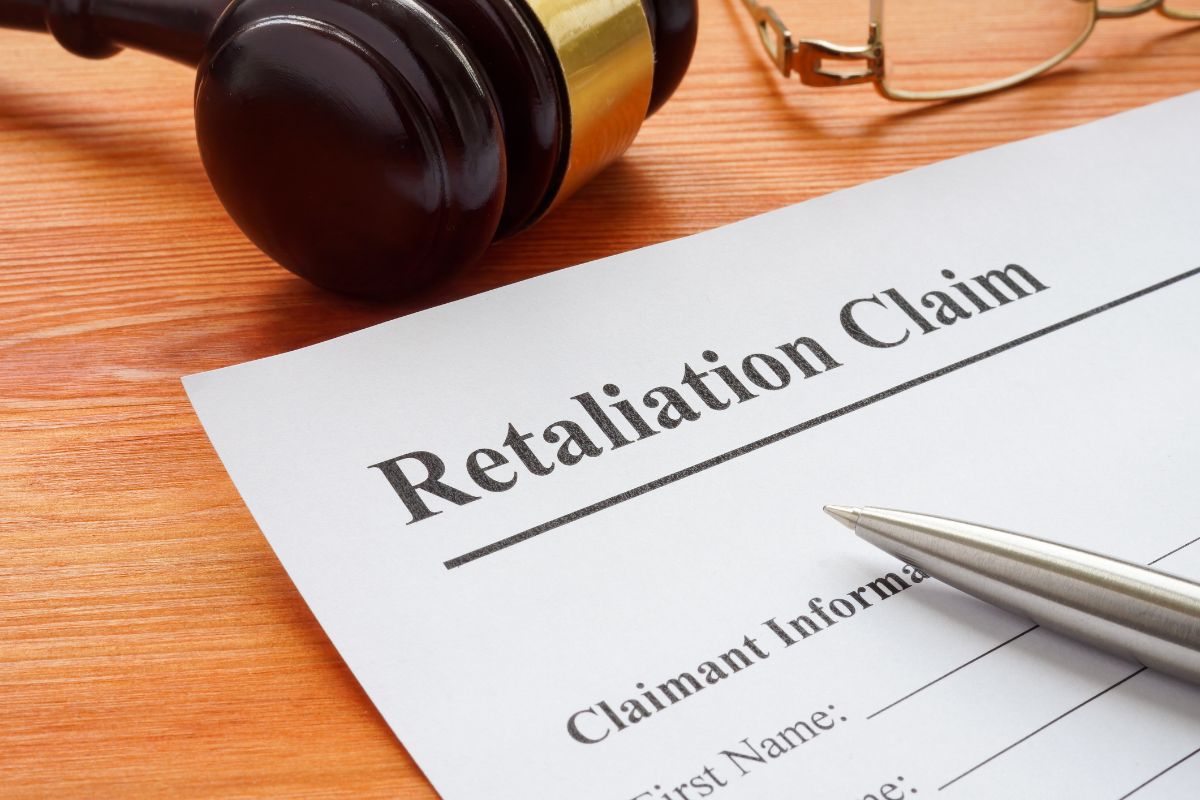If you are involved in a sexual harassment reporting or complaint process, your employer does not have the right to punish, intimidate, or otherwise retaliate against you. Your employer may not retaliate whether you have reported the harassment to a supervisor or filed a formal court complaint. The sexual harassment allegation and the retaliation allegation are separate from one another. In other words, retaliation claims are taken so seriously that an employer can become absolved of a sexual harassment claim and still be liable for retaliating against the reporting employee.
Retaliation Defined
The Equal Employment Opportunity Commission defines retaliation as (1) participating in a protected activity; (2) materially adverse action is taken by the employer; and (3) there is a requisite level of a causal connection between the protected activity and the materially adverse action.
Complaining about workplace sexual harassment is a statutorily protected activity.
Anti-retaliation laws are designed to neutralize the power imbalance between the employer and employee relationship. Employees often rely on their place of employment to support themselves or their families and are understandably hesitant to report sexual harassment for fear that they may jeopardize their employment.
There are several ways an employer may subject an employee to the adverse employment action
Some forms of retaliation are flagrant, blatant, and obvious. However, most of the time, retaliation is much subtler and nuanced. Here are some examples of what can be considered retaliatory behavior:
- Termination
- An undeserved performance review
- Social or professional isolation
- Denial of opportunities
- Being moved to a different department
- Cutting hours
- Decreasing workload (reducing responsibilities)
- Heavily increasing workload (employee overwhelm)
- Harsh management
How to know whether there is a causal relationship between the complaint and adverse actions
When courts look at whether there is a causal relationship between the sexual harassment complaint and the adverse actions against you, they will look at whether your complaint influenced the adverse employment action. If it was, your employer might be liable for damages. Whether there is a causal relationship is heavily fact-dependent. If you are evaluated in a negative light undeservingly, the sudden hostility tips the scales toward retaliatory employer behavior.
What to do When You are Being Retaliated Against
If you suspect you may be the subject of workplace retaliation due to reporting sexual harassment, document your experience by keeping an organized record of it. When you document your experience as the subject of retaliatory behavior, you are giving yourself the best chance of proving a retaliation claim.
Here are a few tips to keep in mind:
- Specificity is key: The more specific you are in your record-keeping, the better. Expand on what you have just experienced. For example, say you are now getting mistreated by management. Try to extract as much information out of the incident as possible. Document what time it occurred, where it occurred, what was said or done to you, and who was around.
- Document Quickly: You should try to document your experience quickly while still fresh in your mind. Once time passes, it may be harder for you to remember small, minute details that may nevertheless be important to your case.
- Note everything: It may feel alarmist to take note of everything, which is normal. However, every little detail matters when investigating your claim.
- Safe-keep your records: Find a reliable and safe place to keep your records that works best for you. For example, whether a computer document that auto-saves your work or in a physical notebook locked away somewhere safe, make sure it is a reliable mode of record-keeping and won’t end up missing or deleted.
Contact Experienced Employment Law Attorneys for Help
If you are reading this, you are probably considering talking to an attorney, which is a significant step to rectifying unlawful employer retaliation. As soon as you experience adverse behavior from your employer, an experienced employment law attorney at The Crone Law Firm can walk you through your options and help you strategize to maximize your chance of getting the justice you deserve.
You can reach out to us by filling out the online form or calling us at (901) 737-7740. If you found this blog post helpful, follow us on social media by hitting the links at the top of this page to stay informed through more tips and advice.


